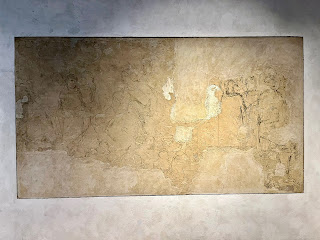(revised on Medium) On a sachet of brown sugar (series: notes to myself)

Mid-morning, somewhere in Italy. Seating at a bar, in an elegant square, summery weather, a kind breeze, refreshing. An espresso macchiato comes with a brown sachet of sugar, to be added if you wish. I look at it. I look around. I have time to think. How do people deal with this task? Can one divide people, the sugary kind, into types according to how they open a sachet of sugar? A student, with interesting tattoos on her left shoulder, opens it by pinching the two sides and pulling them, gently ungluing the sachet. It requires her to use four fingers, each couple pinching a side of the sachet. She is attentive and careful. She better be. I know that feat is demanding. Too much force and the sachet may give in abruptly, spreading the sugar everywhere. Too little, and the little shell will hold on to its content and won’t be convinced to release its treasure. I love the cautions determination. She puts her hands together, palms touching at the bottom as if praying, to measure the effort...







.jpg)




